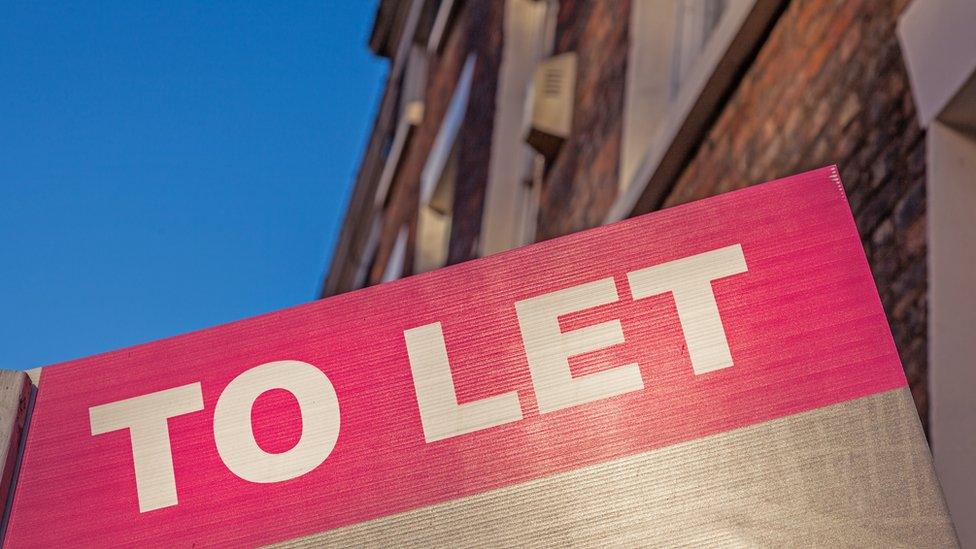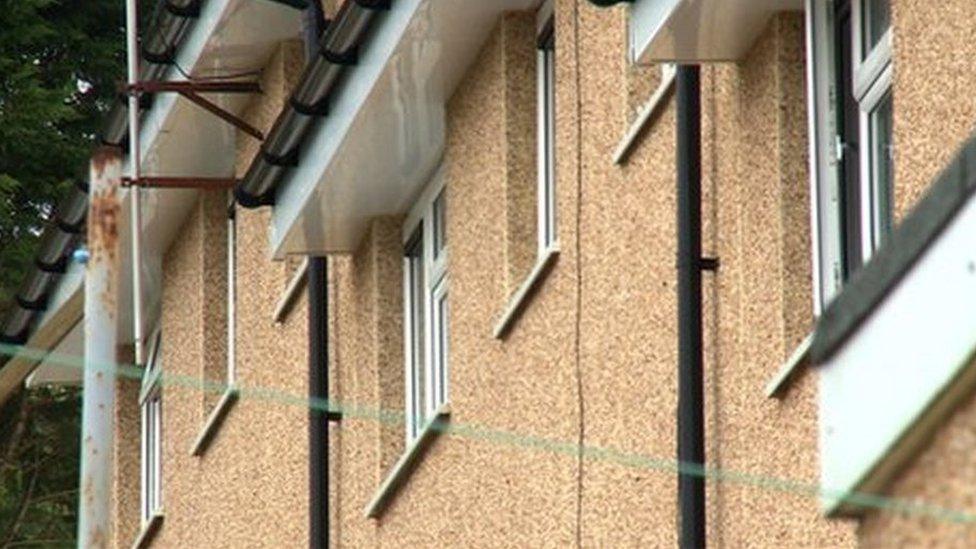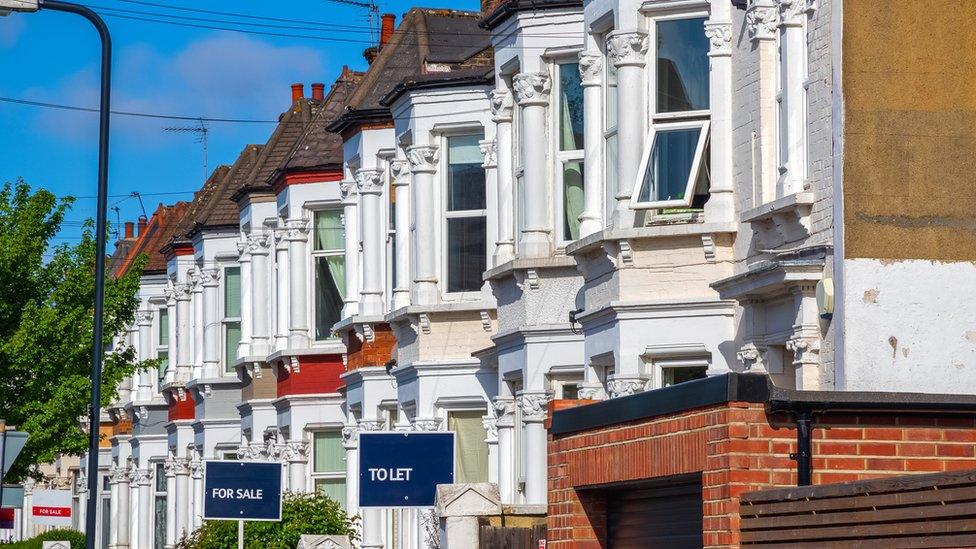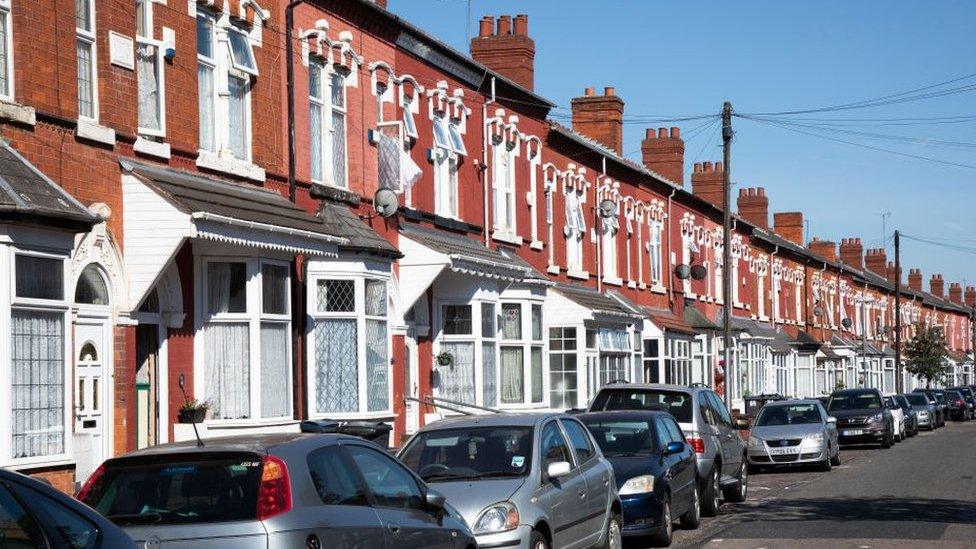Coronavirus: Furloughed student 'drowning' in rent arrears
- Published

Rutendo Dafana said getting into rent arrears was like "drowning"
A student fears having to take a year out after being furloughed from their bar job and "drowning" in rent arrears.
Rutendo Dafana has only been able to afford to pay three-quarters of their rent since being furloughed in March.
Nearly 40% of an estimated 180,000 tenants in private housing in Wales have fallen behind on rent in lockdown, according to a Rent Smart Wales survey.
Without action, Citizens Advice Cymru fears a "wave of evictions" from 23 August, when a pause on evictions ends.
"It feels like you're constantly drowning but you never die," the medical science student from Treorchy said.
The Cardiff Metropolitan University student is now considering the "not ideal" choice of leaving study for full-time work.
"The furlough scheme is giving me only 40% of what I used to make and I was hoping that the government would introduce some sort of rent forgiveness or rent discounts," the 21-year-old said.
"I feel like it's definitely needed now because everyone is struggling. You can't expect the money to come out of nowhere."
A Rent Smart Wales survey of 1,343 landlords found 38% had tenants unable to pay full rent since lockdown began on 23 March.

A Rent Smart Wales landlord survey found 38% had tenants unable to pay full rent since lockdown began
That is the equivalent of 68,000 tenants in Wales who have fallen behind.
According to the survey, 28% of those were more than two months in arrears.
Citizens Advice Cymru said calls for help with rent "doubled" during lockdown, with 1,037 between 24 March and 23 June this year, compared to 497 during the same period last year.
Policy advisor Gwennan Hardy recently warned the Senedd's equality, local government and communities committee that when the eviction pause ends in August many tenants could be "threatened with homelessness".
"Whilst the pause in evictions and the extension of the notice period for tenants were really welcome, it has pushed problems further down the road," she told the committee.
"We'd like to see some targeted help for people."
The organisation has called on the Welsh Government to extend the no-fault eviction notice period from three months to six, which said it was reviewing it.
Rent Smart Wales' survey also found nearly one in five landlords were struggling to pay their mortgage during lockdown.

Rent Smart Wales also found nearly one in five landlords were struggling to pay their mortgage during lockdown
Douglas Haig, of James Douglas Letting Agency in Cardiff, said after three months of reduced revenues, many landlords were struggling to cover costs.
"Banning evictions is not a solution," he said.
"In the long run that will mean landlords will not be able to pay their mortgages and those properties will be repossessed and increase homelessness over the long term."
Mr Haig, a representative of the National Residential Landlords' Association, said a survey it carried out revealed one in five tenants in Wales was on furlough.
He was concerned the number of tenants unable to pay rent would increase when the furlough scheme was wound down.
"If we don't do something now, and possibly quite radical, then we could be looking at a lot more tenants being unable to pay their rents," he said.
He called on the UK government to raise universal credit housing allowance from 30% of average rent in Wales to 50% and offer tenants a three-year interest-free loan to cover lockdown rent arrears.
The UK government said it had spent an extra £6.5 billion on the welfare system in response to Covid-19, including raising local housing allowance rates for universal credit and housing benefit claimants, which it said were worth an additional £600 a year on average.

One landlord insurer said said tenants and landlords were in a "tough spot"
Landlord insurers Hamilton Fraser estimates tenants who have fallen three months behind - £1,616 on average - in rent payments could take more than four and a half months to catch up.
The firm's Matthew Hooker said tenants and landlords were in a "tough spot".
"The UK government has provided both with some initial respite in the form of no evictions and mortgage holidays, however, this is only a temporary fix to a problem," he said.
- Published8 July 2020

- Published1 April 2020

- Published20 February 2020
